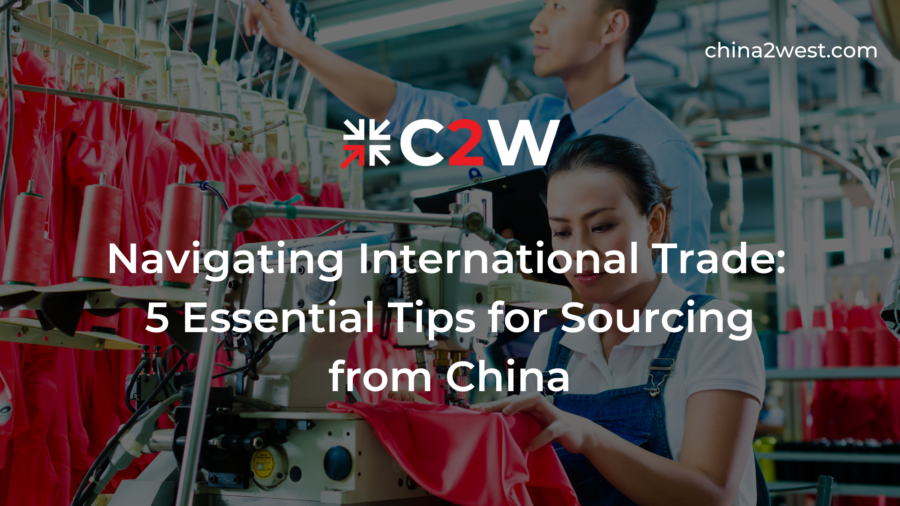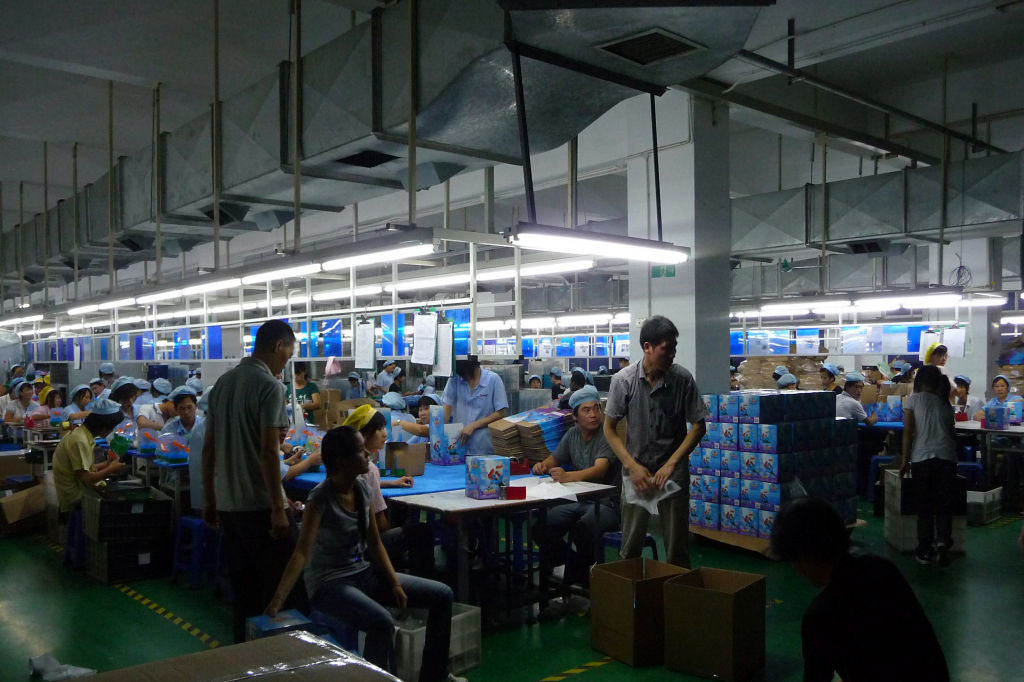China is a key source of revenue for many multinational companies such as Gucci, Nike, and other notable businesses. If you want to be successful like these companies, consider sourcing from China as well.
Before you get started with the process, you need to follow the best tips to navigate international trade with confidence. From finding the right suppliers to clear communication, this is a critical part of your supply chain.
Keep reading to learn what to look for in a sourcing agent.
1. Look for the Right Supplier
If you want to start sourcing from China, you need to spend time looking for the right supplier. There are great online sourcing platforms like Global Sources, Alibaba, and Made in China that connect buyers to suppliers in China.
These online sourcing platforms rate suppliers to help you in the shortlisting process. Check reviews and other sources to ensure the supplier you choose is reliable.
These resources can help you draw up a shortlist. If you use a general search engine, the businesses that show up might be resellers and not manufacturers.
Sourcing from a middleman isn’t necessarily a bad thing, but it’s best if you are buying products for retail purposes.
When you need products that meet specific technical requirements like plastic injection molding, die casts, and metal stamping, you should identify a manufacturer to source from directly. Doing this can also reduce costs.
2. Verify Suppliers
With your shortlist of suppliers, verify each of their credentials. A lot of this obvious information is online, but evaluate whether they have the technical expertise and production capability to deliver what you need.
In addition to finding this information online, there are many other ways to verify suppliers. Ask the factory for audited accounts, and product samples, and check the Value Added Tax Invoice.
You could identify the factory’s Chinese name, and location, and look into the local government office under whose jurisdiction it falls. The office will have the factory records you are looking for which can be used to verify details.
3. Quality Is Proportional to Cost
Purchasers across the world look at suppliers in China because of low manufacturing costs. Even with the additional shipping costs and duties, the overall cost ends up being cheaper than sourcing from somewhere in the U.S.
While negotiating with potential suppliers, ask manufacturers what their price floor is. This is the minimum cost it takes to manufacture the product.
If you have done enough research, you should have a general idea of what the price is. Don’t choose the supplier that offers you a price below the average.
Purchasers with huge orders will try to beat down the supplier’s price even more. For example, consumer product packaging requires using high-quality materials if you want to impress customers.
Choosing crappy packaging because of an unreasonable price point won’t end up great for either party.
If suppliers go below their minimum price, there is going to be a negative impact somewhere within the supply chain. It could manifest either in quality reduction or hurt the workers’ pay or work conditions.
A supplier might also bypass steps in the quality control process if they aren’t being paid adequately. This affects your product and your reputation. The worst-case scenario is that it could have legal implications.
4. Communicate Clearly
When sourcing to China, supplier credibility and product requirements are the key things to consider. However, you need to remember that there is going to be a language and culture gap.
There are bigger suppliers with English-speaking customer support staff, but many problems between suppliers and purchasers can be traced to miscommunication.
Of course, this is not deliberate, but it’s important to keep in mind. Doing so can protect you from delays and costly mistakes.
Because of the communication gap, all of your requirements must be put in writing. Clearly detail product specifications, type of packaging, instruction manuals, etc.
At the very least, provide detailed specifications of your product, such as:
- Dimensions
- Materials
- Colors
- Packaging
If there are any other specific requirements that your product needs, include this information as well.
Don’t leave any space for the supplier to make assumptions. You can offer visual aids to help avoid ambiguities. Both parties should have effective communication so that questions are encouraged when something is not clear.
If you find a great manufacturer and don’t know how the communication will work, consider hiring a translator. This ensures you get the services you want and don’t have to worry about communication problems.
For long-term success, building communication can lead to strong relationships. Cultivate a relationship based on trust and transparency.
5. Quality Control Inspections
A great manufacturing agreement is the best way to start a relationship with a supplier. You’ll still need regular quality control inspections to ensure the quality of your product is up to your standards.
Quality control is a process in which a manufacturing company seeks to ensure product quality is enhanced and maintained. Businesses create an environment where management and employees strive for the top results.
Make sure you choose a China-sourcing company that sets standards for product quality by training employees.
Quality control should involve:
- Examining
- Testing
- Gauging
- Measuring
These steps of examining product features are compared to results with specific benchmarks. These are the steps you should look for to ensure the manufacturer you choose has established quality control and inspection processes:
- Creating quality benchmarks
- Aligning the company’s mission and vision
- Implementing control processes
This can help prevent costly mistakes in the future. Problems caught later on in the process will cost more than problems caught earlier.
How to Start Sourcing From China
If you want to start sourcing from China, you can save a lot of money with the right partner. At China 2 West, we help businesses with manufacturing and supply chain services.
We offer a range of services from manufacturing, vendor management, quality control, and quality assurance. Our flexible approach can help many of your business needs.
Ready to get started? Contact us directly and one of our staff members will get back to you within 24 hours.


